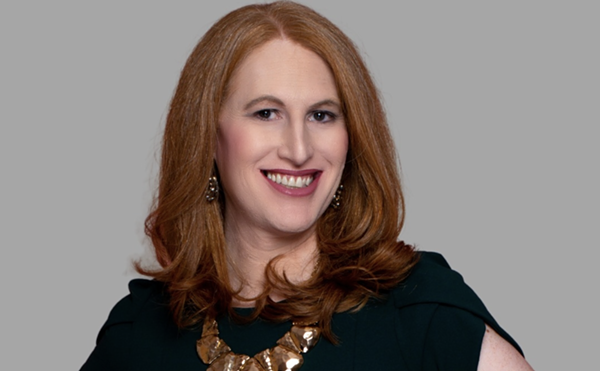Paula Witthaus says Medicaid expansion came too late for her former partner, but it’s not too late to help others in need in Florida.
Witthaus and her late boyfriend, John Byers, were a couple for 18 years, living in downtown St. Petersburg. Then Byers fell ill in January of 2011 with an auto-immune disease called vasculitis. Witthaus says it was treatable — if properly diagnosed. But doctors initially said Byers’ symptoms were the result of a sinus infection and a lower back sprain.
As his health worsened, Byers grew weaker and weaker, moving to part-time status at his building maintenance job and thus losing his employer-based health insurance.
He applied for Medicaid funding, but was initially rejected. Three days after his death on Oct. 14, 2011, Paula received a hospital bill for $375,000. Two days after that, a letter arrived from Medicaid saying he was now approved for coverage.
Witthaus is now a fierce advocate for healthcare reform, calling the treatment of her partner “fiduciary genocide” that she says has to stop. She was one of several activists who gathered last week in South St. Petersburg to thank Governor Rick Scott for his stunning decision to agree to a Medicaid expansion plan he had once scorned, and to call on the Legislature to make Scott’s wishes the law.
But the big question is, will they? And is Governor Scott’s about-face on implementing part of the Affordable Care Act such an insult to his Tea Party base as well as the Florida GOP establishment that he may end up finding himself challenged by a credible member of his own party for re-election next year?
Rick Scott’s aversion to government control of healthcare didn’t just begin with “Obamacare.” When he was chief executive of one of the biggest healthcare providers in the country, Columbia/HCA, he coordinated with other insurance companies to fight against Bill and Hillary Clinton’s attempts to reform the system 20 years ago. He popped back into the national spotlight in 2009 after a just-elected Barack Obama announced that he would push for expanding access to healthcare to tens of millions of uninsured Americans. Scott spent millions of dollars through an advocacy group called Conservatives for Patients Rights to rail against the Affordable Care Act as “the biggest job killer in history.”
After narrowly defeating Alex Sink for governor, he cheered on Florida’s newly elected Attorney General Pam Bondi as she picked up the lawsuit first filed by Bill McCollum challenging the constitutionality of the law.
But the landscape has now changed. The Supreme Court ruled that the law is constitutional. President Obama won re-election. And now an unconventional politician is acting very conventional, trying to make himself more palatable to moderate voters as re-election approaches in a year and a half.
So how big a reversal is his position on Medicaid? University of Central Florida political science professor Aubrey Jewett compares it to George. H.W. Bush’s support for raising taxes in 1990, less than two years after he announced at the Republican Convention in New Orleans, “Read my lips. No. New. Taxes.”
The blowback has been explosive among Florida Republicans, not only within his Tea Party base, but also among his colleagues in the Florida Cabinet, especially Agricultural Commissioner Adam Putnam.
Coupled with other decisions of Scott’s, such as raising transportation funding by 11 percent and giving blanket raises to Florida’s schoolteachers, his change of heart has some Republicans saying it’s the greatest example of pandering since, well, Charlie Crist.
In the immediate aftermath of Scott’s about-face, serious speculation began about a possible Republican Party opponent in a primary election in 2014. The man considered next in line in the GOP pecking order, Putnam, 38, has been extremely vocal in expressing his displeasure with the governor on the healthcare decision.
“I think anyone with an ounce of political gray matter in between their ears sees Rick Scott as extremely vulnerable, and were it not for his ability to write himself a $70 million check, he’d probably have five challengers right now,” said Tampa-based GOP political consultant and Bay News 9 analyst Chris Ingram. “If the election were held tomorrow it’d be a pretty close race, but Putnam would win.”
But while Scott’s actions have sent political analysts into a tizzy, it’s actually the 120 members of the Florida Legislature who will have the final say.
A sense of where House Republicans might stand was foreshadowed this Monday, when a key legislative panel voted against the expansion, 10-5. All 10 votes came from Republicans. A Senate committee postponed its vote on the issue. In his speech to the Legislature on Tuesday, House Speaker Will Weatherford called it a “social experiment destined to fail,” adding “they’re trying to buy states off, one by one. I’m not buying it, and Florida shouldn’t buy it.”














